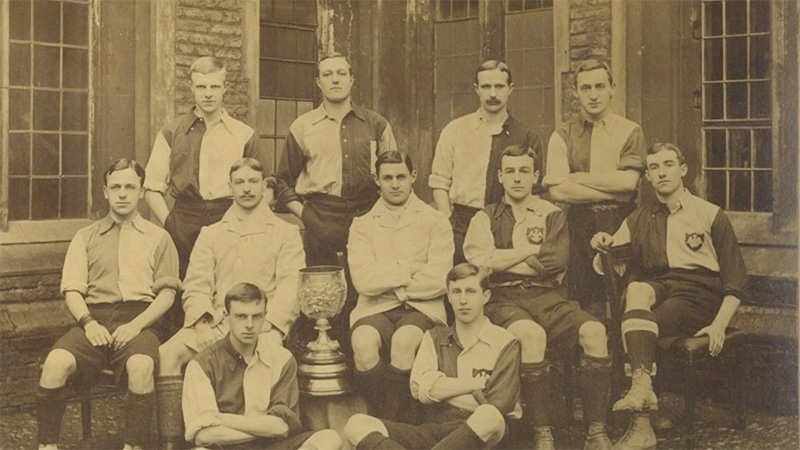Football, also known as soccer in some parts of the world, has a rich and captivating history that spans over a century. It’s a sport that has captured the hearts of millions, and its roots can be traced back to a handful of pioneering clubs that laid the foundation for the beautiful game we know today.
In this blog post, we delve into the past to discover the top 10 oldest football clubs in the world. These clubs have not only stood the test of time but have also contributed significantly to the growth and evolution of football as a global phenomenon. Stay focused.
Top 10 Oldest Football Clubs in the World
Dig into the captivating history of football as we explore the top 10 oldest football clubs in the world. From pioneering the sport’s earliest days to leaving an enduring legacy that continues to shape football’s global appeal, these historic institutions have withstood the test of time.
1. Sheffield FC
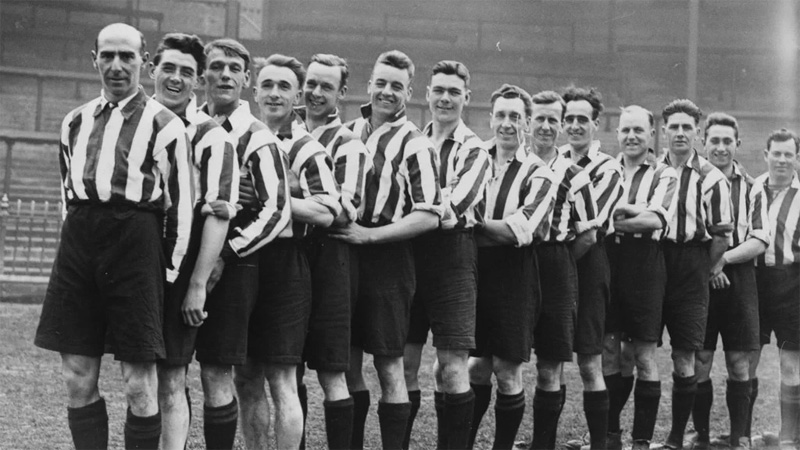
Source: historyofsoccer
Founded in 1857, Sheffield FC holds the distinction of being the oldest football club in the world. Established in the English city of Sheffield, it played a pioneering role in shaping the modern game.
The club’s founding members, Nathaniel Creswick, and William Prest, codified the rules that would later form the basis of modern football. Emphasizing teamwork, skill, and sportsmanship, Sheffield FC quickly garnered popularity among local players and fans.
Through the years, Sheffield FC has seen its fair share of ups and downs, but it has managed to preserve its status as a community-based club. Its commitment to the grassroots of the game has endeared it to many, the Coach and Horses Ground, remains a historic venue for football enthusiasts worldwide.
2. Cray Wanderers FC
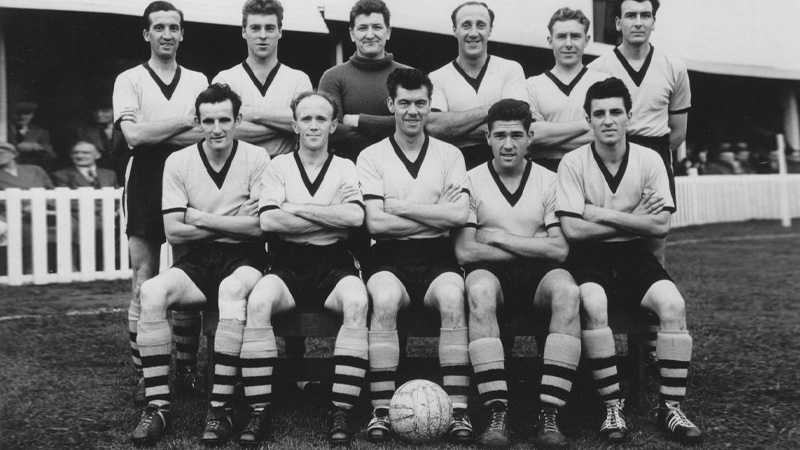
Source: cray-wanderers
Cray Wanderers FC, based in St. Mary Cray, London, is another historic club with a rich heritage. Established in 1860, the club started as a youth organization before evolving into a senior football club. Cray Wanderers’ longevity in the game is a testament to its resilience and passion for the sport.
The club’s early days were characterized by friendly matches against local teams, and it gradually grew in prominence. Despite facing financial challenges and struggles in securing a permanent home ground, Cray Wanderers managed to survive, thanks to the dedication of its supporters and management.
3. Hallam FC
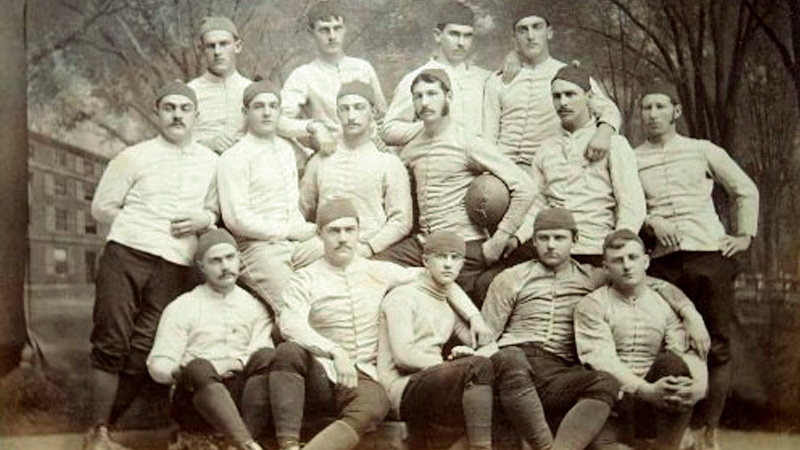
Source: calciomemory
Formed in 1860, Hallam FC, based in Sheffield, England, is recognized by both The Football Association and FIFA as the second-oldest football club in the world.
The club played a significant role in the development of football rules and was instrumental in the formation of the Sheffield Rules, a distinct set of regulations preceding the FA’s rulebook.
Throughout its existence, Hallam FC has been a prominent figure in the Sheffield football scene and has fostered local talent. The club’s home ground, Sandygate Road, has witnessed countless historic moments in football, making it an essential pilgrimage site for enthusiasts of the sport’s origins.
4. Kilmarnock FC
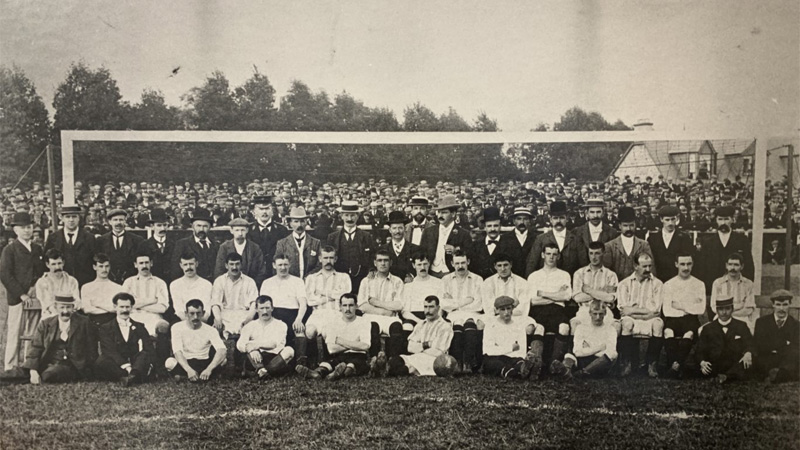
Source: kilmarnockfc
Kilmarnock FC, based in the Scottish town of Kilmarnock, is one of the oldest football clubs in Scotland, founded in 1869. The club has a storied history in Scottish football and has been a regular competitor in the Scottish top-flight leagues.
Kilmarnock FC boasts a dedicated fanbase and has experienced various successes, including winning the Scottish Cup and qualifying for European competitions. The club’s Rugby Park stadium has been its home since its inception, providing a familiar and cherished venue for players and fans alike.
As one of the oldest football clubs in the world, Kilmarnock FC has left an indelible mark on the Scottish footballing landscape and continues to be an integral part of the nation’s sporting heritage.
5. Queen’s Park FC
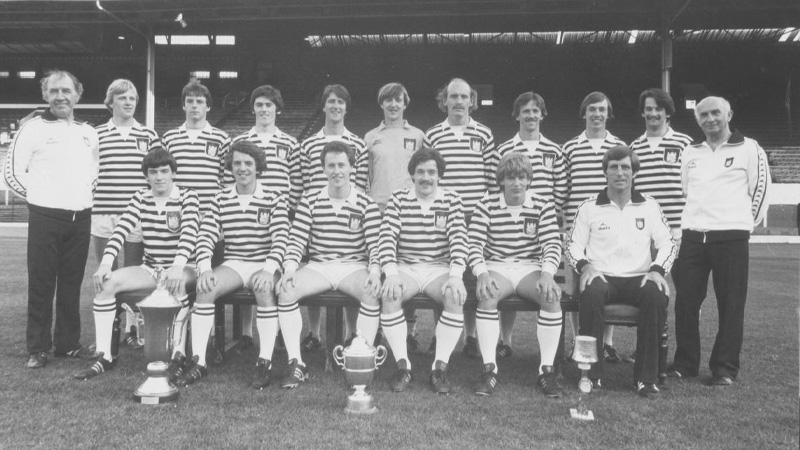
Source: glasgowtimes
Founded in 1867, Queen’s Park FC holds the prestigious title of being the oldest football club in the world still in existence. Based in Glasgow, Scotland, the club has a rich history and was a founding member of the Scottish Football Association (SFA) in 1873.
Queen’s Park is renowned for its distinctive amateur status, refusing to pay players for their services, a tradition they uphold to this day. Despite their amateur approach, the club has enjoyed success over the years, winning the Scottish Cup 10 times in the 19th century.
Queen’s Park’s commitment to the spirit of the game and its longevity makes them an iconic institution in football history.
6. Stoke City FC

Source: ebay
Stoke City FC, established in 1863 as Stoke Ramblers, is another club with a deep-rooted football heritage. Located in Stoke-on-Trent, England, the club has evolved significantly since its early days.
Stoke City was one of the 12 founding members of the Football League in 1888, making it one of the pioneering teams in the professional era of English football.
The club’s greatest achievement came in 1972 when they won the Football League Cup, their first and only major trophy to date. Stoke City’s longevity and contributions to English football history have cemented their place as one of the oldest and most respected football clubs in the world.
7. Notts County FC
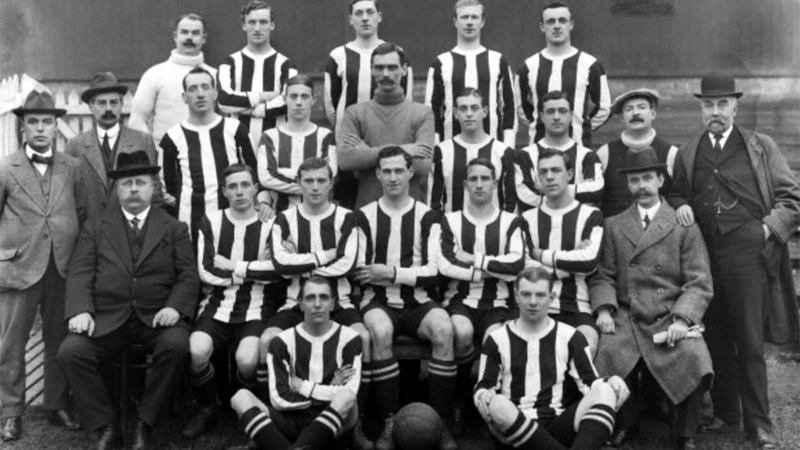
Source: footballandthefirstworldwar
Notts County FC, formed in 1862, holds a unique distinction in football history as the oldest professional football club in England. Located in Nottingham, the club’s early years were marked by friendly matches, but in 1864, they officially adopted professionalism, setting a precedent for the future of the sport.
Notts County was among the founding members of the Football League in 1888, and in 1894, they secured their only top-flight league title. Despite facing challenges in recent years, the club’s rich heritage and longevity make them an integral part of football’s historical tapestry.
8. Sheffield Wednesday FC

Source: swfc
Established in 1867 as “The Wednesday,” Sheffield Wednesday FC is one of the oldest football clubs in England. Based in Sheffield, the club has a strong following and has experienced notable success throughout its history.
The 1890s were particularly prosperous for Sheffield Wednesday when they won the Football League title twice and the FA Cup once. The club has also had numerous periods of success in lower divisions, cementing its place as one of the country’s enduring football institutions.
9. Ross County FC
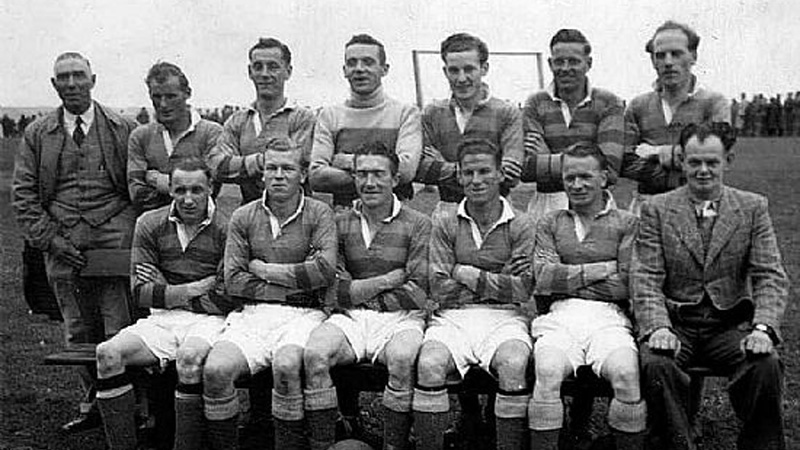
Source: spanglefish
Hailing from Dingwall, Scotland, Ross County FC was founded in 1929, making it one of the newer clubs on this list. However, its origin can be traced back to a much older club called Dingwall Thistle, which dates back to 1877.
Ross County’s roots in Dingwall Thistle and its foundation in 1929 contribute to its status as one of the oldest football entities in Scotland.
Over the years, the club climbed up the ranks of Scottish football and reached the Scottish Premier League in 2012, demonstrating their steady growth and resilience in the modern era.
10. Partick Thistle FC
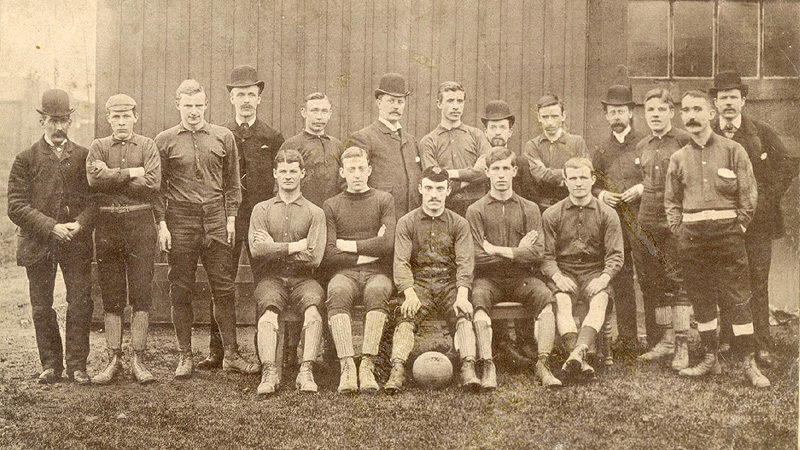
Source: theglasgowstory
Partick Thistle FC, founded in 1876, is another historic Scottish club with a passionate fan base. The club’s name originates from the Partick district in Glasgow, where it was formed.
Although they have not achieved substantial success in terms of major trophies, Partick Thistle has had its moments of glory, including winning the Scottish Cup in 1921.
The club’s consistent presence in Scottish football and its enduring legacy make it one of the esteemed members of the sport’s oldest institutions. Their contributions to the sport have shaped its development and influenced countless generations of players and fans alike.
These clubs have left an indelible mark on the world of football and continue to be celebrated for their enduring legacy.
Legacy of the Oldest Football Clubs
The legacy of the oldest football clubs extends far beyond their longevity. These historic institutions have left an indelible mark on the sport, shaping its development and contributing to its global popularity. Let’s explore the significant aspects of their legacy:
Pioneers of the Beautiful Game
As some of the earliest football clubs in the world, these institutions played a fundamental role in the genesis of the sport. They were at the forefront of the game’s organization, helping to establish rules, standardize playing fields, and develop the framework for competitive football.
Without their pioneering efforts, the modern version of football as we know it might not have existed.
Architecting Football Structures
Many of these clubs were founding members of football associations and leagues, both nationally and regionally. Their involvement in shaping the administrative structures of the sport has had a lasting impact.
They laid the groundwork for competitive leagues and cup competitions, creating opportunities for clubs and players to showcase their talent and compete at various levels.
Cultural and Community Icons
These football clubs have become integral parts of their local communities and regional cultures. Their continued presence over generations has cultivated deep-rooted traditions and passionate fan bases.
The clubs’ colors, crests, and anthems evoke a sense of identity and belonging among supporters, creating an emotional connection that transcends the boundaries of the game.
Sporting Achievements and Legacies
Throughout their storied histories, these clubs have achieved remarkable successes on the field. They have won domestic league titles, national cups, and international honors, earning themselves a place in football folklore.
The stories of their triumphs and iconic players are passed down from one generation of fans to the next, becoming an integral part of football’s collective memory.
Ethos and Values
Many of these oldest football clubs have upheld certain values and traditions that have become synonymous with the sport. Their commitment to amateurism, sportsmanship, and fair play, even in the face of professionalism and commercialization, has set them apart as exemplars of football’s original spirit.
Inspiration for Future Generations
The enduring legacy of these football clubs serves as a source of inspiration for aspiring players, coaches, and fans. Their resilience and continued relevance in the modern era demonstrate that football is not just a passing fad but a timeless passion that can unite people across generations and borders.
FAQs
What criteria were used to determine the oldest football clubs?
The list of the top 10 oldest football clubs is based on their official dates of establishment. Clubs that have been consistently in operation since their inception have been given priority, and any mergers or name changes are taken into account when determining their age.
Are these clubs still active in competitive football today?
Yes, all the football clubs on this list are currently active in competitive football. While some may have faced relegation or promotion to various divisions over the years, they continue to play a vital role in their respective leagues.
How did these clubs influence the development of football?
Many of these clubs were founding members of football associations and leagues in their respective countries. They played crucial roles in shaping the rules, regulations, and competitive structure of the sport.
Additionally, their longevity and enduring fan base have contributed to the popularization of football both locally and globally.
Have any of these clubs achieved significant success in competitions?
Some of the clubs on this list have illustrious histories filled with success. They have won domestic league titles, national cups, and other prestigious competitions. Their achievements on the field have made them iconic institutions in the world of football.
What challenges have these clubs faced throughout their long history?
Over the years, many of these clubs have encountered financial difficulties, changing football landscapes, and periods of on-field struggles. However, their passionate fan bases and deep-rooted traditions have allowed them to weather these challenges and continue their legacy.
End Call
As we explore the top 10 oldest football clubs in the world, we gain a profound appreciation for the sport’s heritage and the role these clubs have played in shaping football’s evolution.
From founding football associations to clinching remarkable victories, their stories are intertwined with the sport’s global narrative.
As these clubs continue to grace the football pitches, they carry with them a legacy that transcends time, reminding us of the enduring power of the beautiful game. Thank you for your support.

